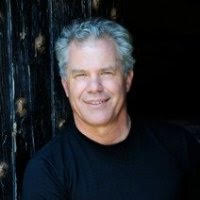As reported in Bay Crossings, we ferry riders never tire of reading about bygone eccentrics.
Finally, those who wish to celebrate the famous (and infamous) characters whose charismatic personalities and perseverance created the institutions, businesses and cultural fabric of San Francisco might wish to pick up a copy of Misfits, Merchants and Mayhem by local author Lee Bruno.
This is a collection of essays and historic photographs containing tales of some of the enterprising entrepreneurs, reckless financiers, tireless reformers, visionary architects and city planners, and bohemian artists, musicians and poets who all heeded the call of promise and headed to the Bay Area.
Ever since discovering his great grandfather Reuben Hale’s inspiring letters and speeches, Lee Bruno has been digging into San Francisco’s rich history. Bruno, who received his master’s degree in science journalism from Boston University, is the author of Panorama: Tales from San Francisco’s 1915 Pan-Pacific International Exposition (Cameron + Company) and has been writing for over 20 years about business and technology for The Economist, The Guardian, MIT Technology Review, Red Herring magazine, and Wired, among others. He has lived in San Francisco for more than 30 years, raising a family of four boys with his wife and enjoying long open-water swims with the eccentrics at the South End Rowing Club.
The book’s engaging introduction is written by Charles Fracchia, the founder and president emeritus of the San Francisco Museum and Historical Society, who has given talks on a variety of historic subjects to such groups as the Commonwealth Club and the Mechanics’ Institute. He currently lectures at the Fromm Institute at USF. Charles has a BA from USF, an MLS from the University of California, an MA from San Francisco State, and an MA in theology from the Graduate Theological Union/Berkeley. He was one of the founders of Rolling Stone and has written many books and articles about San Francisco history.
For more information, see cameronbooks.com.

